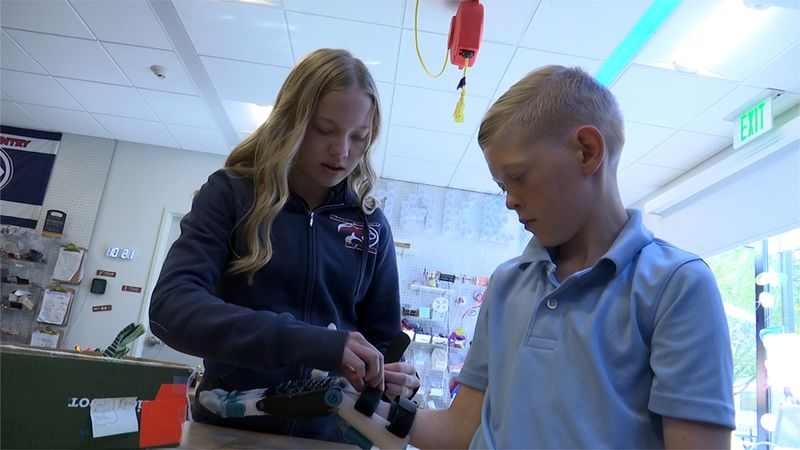In today’s fast-paced world, the simple act of touch is often overlooked, especially for boys who may not receive the affection they need. Understanding ‘touch starvation’ is essential for parents, as it highlights the emotional and psychological impact of affection deprivation.
Physical touch, a basic human need, plays a crucial role in a child’s development. Boys who lack this contact may face numerous challenges, from emotional distance to self-worth issues.
This blog post explores 16 effects of touch starvation on boys and offers insights on how parents can help bridge this gap. Small gestures of connection can make a significant difference, nurturing a child’s emotional well-being and fostering a sense of security.
1. He may act ‘tough’ to cover up sadness
In the heart of every “tough” exterior lies unspoken emotions. Boys often wear a mask of toughness to shield their vulnerabilities. This facade may emerge from a need to conceal the sadness that comes with touch deprivation.
By acting strong, they hope to ward off questions about their feelings. However, this act can lead to an internalized sense of isolation. Parents can help by gently encouraging open conversations, validating their child’s emotions and ensuring they feel heard.
Simple acts of reassurance and understanding can slowly dismantle this tough exterior, fostering a nurturing environment where he can truly express himself.
2. He might not know how to express what he feels
Expressing feelings can be challenging for boys experiencing touch starvation. They might struggle to find the right words to articulate their emotions. Frustration builds as the inability to convey their thoughts grows. Parents can step in by providing tools and opportunities for expression.
Encouraging journaling, art, or even storytelling can open new pathways for emotional expression. Listening without judgment is key, allowing them to explore their feelings at their own pace. These creative outlets can serve as a bridge, helping boys navigate their emotional landscapes.
3. Physical distance can grow into emotional distance
Physical separation often subtly transforms into emotional chasms. When boys sense a lack of touch, they might withdraw further, creating invisible walls. This distance can lead to feelings of loneliness and disconnection from family.
Parents can counteract this by slowly reintroducing gentle touch and warm interactions into daily routines. Sharing activities like cooking or playing games enhances connection. By bridging the physical gap, emotional bonds are strengthened, creating a harmonious home environment.
4. He may stop asking for hugs—without stopping the need
Asking for physical affection might become daunting for boys who feel touch-starved. They may stop requesting hugs, yet the need remains deeply rooted within. This quiet yearning can lead to feelings of neglect or being unimportant.
Parents can be proactive by offering hugs and affection without waiting for a request. Gentle, spontaneous gestures of love reassure boys of their worth and importance. Such consistent acts of kindness can gradually encourage them to seek the affection they need openly.
5. Stress shows up in sleep, anger, or silence
Touch starvation can manifest as stress, affecting various facets of a boy’s life. Their sleep may be restless, plagued by anxious thoughts. Anger might bubble beneath the surface, or they might retreat into silence. These indicators are cries for connection and understanding.
Parents play a vital role by recognizing these signs and addressing them with empathy. Establishing a calming bedtime routine or engaging in heart-to-heart discussions can ease these tensions, promoting emotional relief and better sleep.
6. He could interpret attention as approval, not love
Boys experiencing touch deprivation may start equating attention with approval rather than love. They might seek validation through achievements, fearing their worth is conditional. This skewed perception can lead to anxiety about performance.
Parents can clarify this by offering unconditional love and affection, separate from accomplishments. Emphasizing love over approval reassures boys of their intrinsic value. This understanding nurtures a healthier self-image, fostering genuine self-worth.
7. His self-worth may quietly suffer
Without physical affirmation, boys’ self-worth might dwindle unnoticed. The absence of touch can create an internal dialogue of inadequacy and self-doubt. Parents can counter this by providing consistent encouragement and physical gestures of love.
Positive reinforcement and affectionate interactions remind boys of their inherent worth. Simple affirmations can gradually rebuild their confidence, helping them view themselves positively.
8. He might become overly dependent on peers for validation
Without familial touch, boys may seek validation from peers, striving to fit in or be accepted. This dependency can skew their self-perception, making them vulnerable to peer pressure.
Parents can provide a stable foundation of affection and support, helping boys understand their value beyond peer opinions. Encouraging independent thinking and self-acceptance fosters resilience, reducing reliance on external validation.
9. Comfort with affection drops over time
Prolonged touch starvation can make boys uncomfortable with physical affection. They may react stiffly or pull away, unsure of how to respond. This discomfort can further isolate them, reinforcing emotional barriers. Parents can help by gently reintroducing touch in non-intrusive ways.
Playful activities, like tickling or shoulder pats, can ease them into accepting affection. Gradual exposure to loving interactions can renew their comfort with touch.
10. He could develop a fear of emotional closeness
Touch deprivation may lead boys to fear emotional closeness, wary of vulnerability. They might avoid intimate relationships or deep conversations, fearing hurt or rejection. Parents can nurture openness by modeling healthy emotional interactions and fostering trust.
Encouraging honest communication at home can alleviate fears, showing boys that emotional closeness is safe and rewarding. This foundation helps them build meaningful connections.
11. He may turn to screens instead of people
In the absence of touch, boys might seek solace in screens, finding digital interactions easier than face-to-face connections. This reliance can hamper social skills and emotional growth. Parents can redirect focus by engaging in screen-free activities together.
Board games, outdoor sports, or family outings provide opportunities for real-world connection. By prioritizing personal interaction, boys can learn to balance screen time with meaningful relationships.
12. He might lash out just to get any attention
A lack of physical affection may lead boys to act out, craving any form of attention. Negative behaviors might emerge as attempts to be noticed, even if it results in discipline. Parents can recognize these patterns and address them with understanding.
Offering attention through positive interactions, rather than reacting to outbursts, can guide boys toward healthier ways of seeking connection. Positive reinforcement and active listening are key.
13. Parents might misread withdrawal as rebellion
Withdrawal due to touch starvation can be misinterpreted as rebellion. Boys might distance themselves, appearing aloof or disinterested. Parents may mistakenly respond with strictness or frustration. Understanding the underlying need for affection can help reframe these behaviors.
Open dialogue and empathetic listening encourage boys to express their true feelings. Addressing the root cause fosters understanding, transforming withdrawal into openness.
14. He may not know how to comfort others
Without experiencing comforting touch themselves, boys may struggle to provide comfort to others. They might feel awkward or unsure about how to console a friend in distress. Parents can guide by modeling empathetic behavior and teaching the value of supportive gestures.
Encouraging role-playing or discussing emotional scenarios can build confidence in offering comfort. Over time, boys can develop the skills needed to support others genuinely.
15. The ability to self-soothe may decline
Touch starvation can hinder a boy’s ability to self-soothe. Without physical comfort, they might find it challenging to manage their emotions independently. Parents can assist by teaching self-soothing techniques, such as deep breathing or mindfulness practices.
Providing a comforting object, like a stuffed animal, can also offer solace. These tools empower boys to navigate their emotions, fostering resilience and emotional regulation.
16. Gentle affection from family rebuilds emotional safety
The power of gentle, consistent affection from family cannot be overstated. It serves as a foundation for emotional safety, helping boys feel secure and valued. Through simple acts of love, like hugs or kind words, parents can create a nurturing environment.
This safe space encourages boys to express themselves freely, knowing they are supported. Over time, these positive interactions rebuild confidence and trust, fostering a sense of belonging and emotional well-being.

















